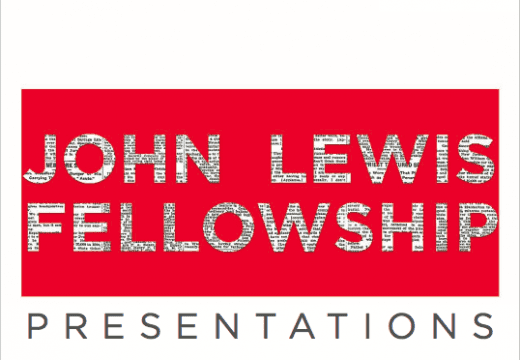Details
Article
1. Introduction
Why these two expressions “history repeats itself” and “bring your knowledge back to your community”, repeated tirelessly by the Fellows and presented as self-evident felt at odds with the conceptual approach that was familiar to me?
I realized that these two sentences underlined a fundamentally different conception of history and of the word community in the US compared to France.
Why is that so?
In France, repetition is considered as unhistorical.
2. Does “history repeat itself”?
In France, repetition is considered as unhistorical. History is basically designed as a science of the past, although some historians like Marc Bloch added that it informs present actions1. In France, history is primarily the history of the dead, of the other, of the inaccessible; “Writings set the stage for a population of dead people,” (2) wrote the French historian Michel de Certeau.
Saying “history repeats itself” involves viewing history as a circle, similar to the nietzschean “da capo”, an eternal return of life to the same.
In the US, by contrast, I felt that history and consciousness are intimately linked. I became aware that history is viewed as a kind of recipient that helps to understand the present and provides opportunities for future actions, (3) which makes it available for activism, unlike France.
Saying “history repeats itself” involves viewing history as a circle, similar to the nietzschean “da capo”, an eternal return of life to the same.
But my question was: what is the reference period where everything starts again? Prehistoric times? The genocide of Indians? Slavery? The civil rights movement? How could it be an identical repetition if the socio-historical conditions are different?
Throughout the lectures, my conception of history found itself enriched. It was not anymore linear like French history, but not quite circular like American history -rather like an unidentified object, a cluster, with periods overlapping each others.
 This new vision of history allowed me to understand that the denunciation of “modern lynching” used during our march with “Black Lives Matter” was not a historical inaccuracy (black Americans killings have nothing in common with lynching in terms of methods, organization, collective attitudes) but in fact a cry against the recurrence of a historical phenomenon: institutional racism.
This new vision of history allowed me to understand that the denunciation of “modern lynching” used during our march with “Black Lives Matter” was not a historical inaccuracy (black Americans killings have nothing in common with lynching in terms of methods, organization, collective attitudes) but in fact a cry against the recurrence of a historical phenomenon: institutional racism.
3. What does it mean to “bring your knowledge back to your community?”
When we were told “bring your knowledge back to your community”, my first question was “What community?” To which community do we belong to (racial, religious, or national), and do we only belong to one?
I see myself as part of many causes, as a woman, a scholar and an activist.
Furthermore, the term is not used in France: it refers mostly to religious groups and has often a negative connotation. Indeed, the French Republic is a “colorblind” society. According to the Constitution, it is one and indivisible and therefore does not conceive the existence of internal communities, meaning that the collective political project is supposed to go beyond particularisms, an idea inherited from the French Revolution.
Moreover, I see myself as part of many causes, as a woman, a scholar and an activist. In my opinion, the term community is thus problematic and impractical in France because it is not claimed by minorities. So the question is: should I use it nevertheless and push for self- awareness –but is it my role?- or should I use a completely different word?
4. On the appropriation of history
In France history is seen as a universal heritage and the legitimacy of the historian to seize history is not put into question as long as his work is academically sound.
Thus, the “we” used by some speakers to refer to history, that can also be found in the book The Coming by Daniel Blake, (4) would be impossible in France, where the tendency is to erase the presence of the historian and to clearly differentiate history and memory.
Nevertheless, I gradually realized that the age-old racial injustice and the white master narrative justify the appropriation of African-American history by the black community.
This idea was intolerable for me because it runs the risk of promoting relativism and, as a consequence, negationism.
Discussions with American fellows made me understand that, in the US, the historian was either too emotionally involved to be objective, or lacked this knowledge of experience considered so precious in the United States – in this case his implicit bias does not allow him to tell the history of a community without having lived in his flesh racism.
How can the historian get out of this dilemma? In fact, these two apparently contradictory positions seem to me to have more in common than it appears: they presupposed that the very possibility of a historical fact is annihilated. This idea was intolerable for me because it runs the risk of promoting relativism and, as a consequence, negationism.
At the same time, the conferences showed that Malcolm X ‘s contribution was downplayed compared to the one of Martin Luther King, showing how history is not objective and maintain an ambiguous relationship with ideology.
If history is not neutral, should we nevertheless consider some forms of history as illegitimate? If every history is situated, I wondered, should we not give up the idea of having just a single point of view?
It is only by putting several people around the same object that an idea starts to take shape of what the object is.
As a historian and philosopher, I realized that phenomenology provided an interesting paradigm for history. Phenomenology in philosophy precisely demonstrates that one’s perception of an object is always incomplete, we can only have side views of this object.
It is only by putting several people around the same object that an idea starts to take shape of what the object is. It therefore seemed important not to prioritize speeches of historians according to some absolute “truth” value, but to accept the fact that all history is situated, and come to understand the contribution of different perspectives on the same object.
After this fellowship, I realized that the history of the communities was not a homogenous bloc in the United States.
My last question was: should we write a history of community per se or include it in the national history? Should the history of communities be a corrective to national history or should it be a separate and exclusive history? Should it restrict itself to a protest speech or be an original construction?
After this fellowship, I realized that the history of the communities was not a homogenous bloc in the United States. The differences in designations of “race studies” departments are not just a terminological variation, but are a reflection of these epistemological differences;
African-American studies, Africana studies … Should we reject this artificial hyphen between “African-American” or not?
 I began to wonder on how I can translate this reflection on communities and history into the French context.
I began to wonder on how I can translate this reflection on communities and history into the French context.
First, I came to think, at the end of this program, that a racial history according to the “race studies” paradigm probably would be hard to imitate in France because of national reluctance, and perhaps not desirable, because of divisions that this type of history can bring. Secondly, I think however that the national political project as vital as it is, must recognize the diversity of citizens in terms of religion, ethnicity, and culture.
Therefore, I would like to work on the integration of a history of immigration in our national curriculum. A national history that recognizes the role of immigration in French heritage is inclusive and allows to transform the minds of French citizens over time -as Malcolm X said, “Education is our passport to the future.” (5)
The entry by immigration makes it possible to establish a dialogue and prevent from drawing a strict separation: it allows to address all ethnic groups, all French people issued from diversity who seek recognition, but also the so-called “native” French who tend to deny the importance of this phenomenon.
Behind this lies the philosophical idea that recognition is a two-way process and implied a dual dynamics of being recognized and recognizing. (6)
5. Conclusion
To conclude, this fellowship had the merit to raise new questions for me and to be intellectually stimulating. My main take-away is the conviction that:
- the appropriation of history by a community is essential, since it has just been dispossessed of its history,
- But if all history is situated,
- History cannot be exclusive and diversified narratives are essential.
References:
- Bloch, Marc. Apologie pour l’histoire ou Métier d’historien. Armand Colin, 1997.
- De Certeau, Michel. L’écriture de l’histoire. Folio Histoire, 1975, p. 138
- For example, during the tool kit course, we had to draw a line in order to pick relevant past techniques in history and use them for current activism.
- Black, Daniel. The Coming, A Novel. St. Martin’s Press, 2015.
- X, Malcolm. “Speech at the Founding Rally of the Organization of Afro-American Unity”. BlackPast.org, Remembered & Reclaimed, 1964, blackpast.org/1964-malcolm-x-s-speech-founding-rally-organization-afro- american-unity. Accessed 26 July 2016.
- On recognition, see for example Ricœur, Paul. Parcours de la reconnaissance. Folio Essais, 2005.


